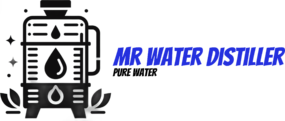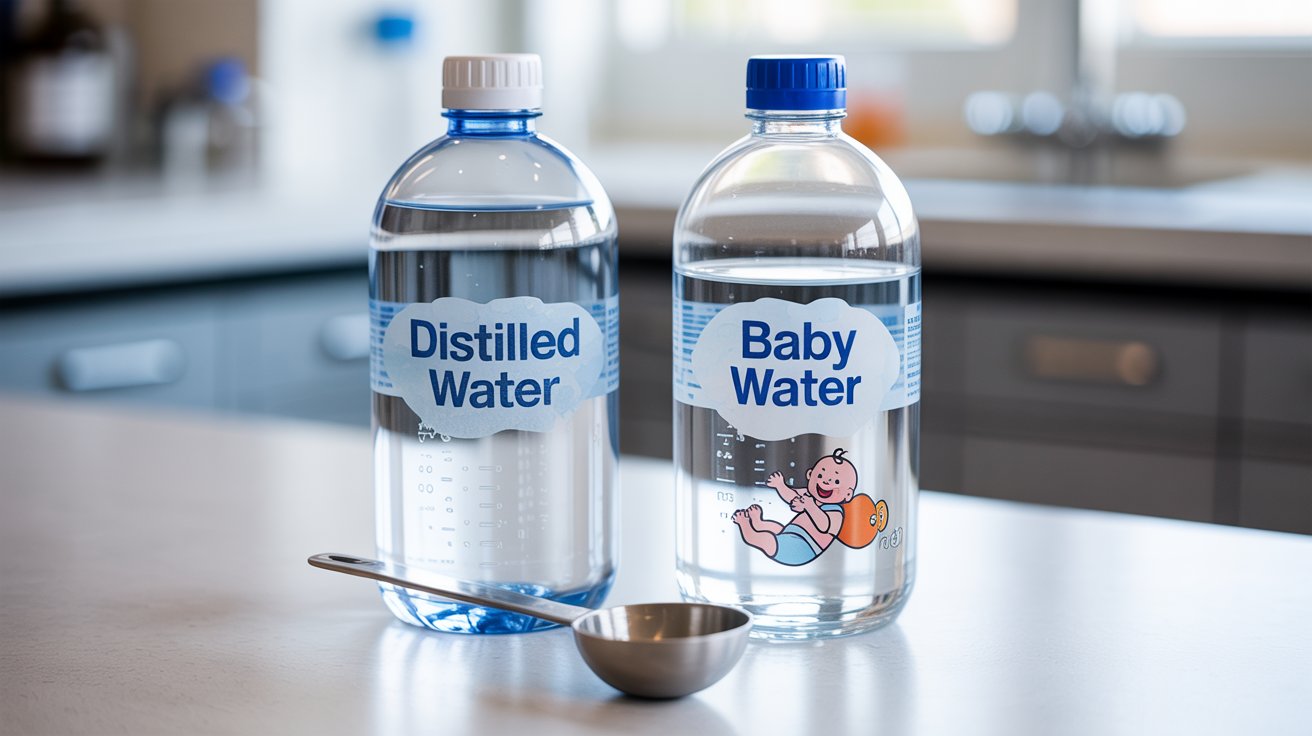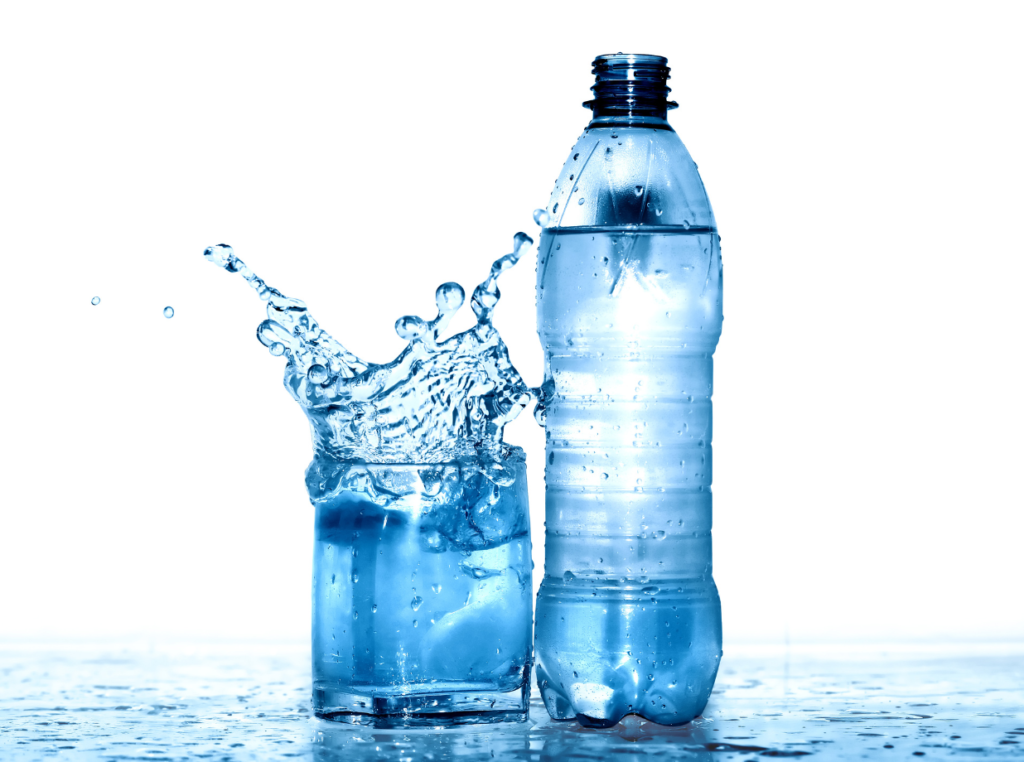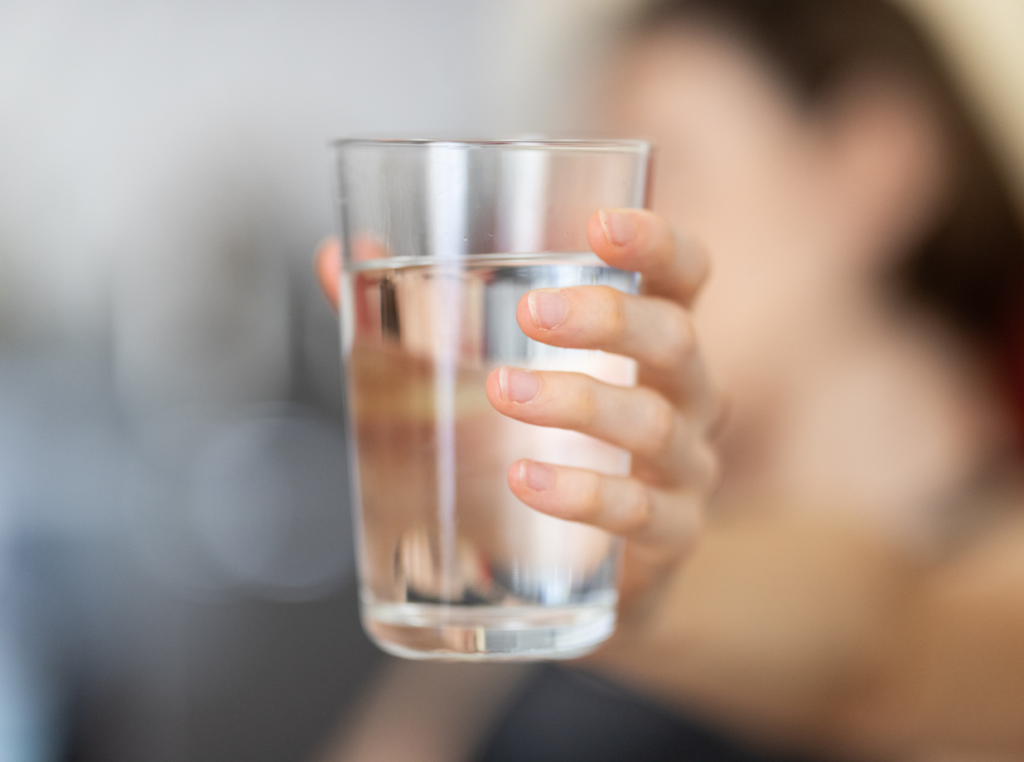Distilled water is water that has been purified through a process called distillation. This process involves boiling water to create steam, which is then cooled and condensed back into a liquid form. The result is water that is free from impurities, minerals, and contaminants. Distilled water is often used in laboratories, medical facilities, and in household appliances such as steam irons and humidifiers. It is also commonly used in automotive cooling systems and in the production of pharmaceuticals and cosmetics.
Distilled water is considered to be the purest form of water, as it is free from any dissolved solids or minerals. This makes it ideal for use in situations where purity is essential, such as in medical procedures or in the production of sensitive electronic components. However, because it lacks minerals, some people argue that it may not be the best choice for everyday consumption, as it may not provide the body with essential nutrients.
What is Baby Water?
Baby water, also known as nursery water, is a type of bottled water that is specifically marketed for use in preparing infant formula and for mixing with baby cereal. It is often marketed as being “purified” or “distilled” water, and may also contain added fluoride for dental health. Baby water is intended to be a safe and convenient option for parents who want to ensure that their baby’s drinking water is free from contaminants and safe for consumption.
Baby water is typically sold in smaller bottles and may be more expensive than regular bottled water. It is often marketed as being specially formulated for babies, with added minerals or nutrients that are beneficial for their development. Some brands of baby water may also be marketed as being “sterile,” meaning that they have been treated to remove any potential pathogens or bacteria that could be harmful to infants.
Differences in Production and Purification
The production and purification processes for distilled water and baby water are similar in some ways, but there are also some key differences. Distilled water is produced through the process of distillation, which involves boiling water to create steam, then condensing the steam back into a liquid form. This process removes impurities, minerals, and contaminants from the water, resulting in a pure and clean product.
Baby water, on the other hand, may be produced through a variety of purification methods, including reverse osmosis, carbon filtration, or distillation. Some brands of baby water may also undergo additional treatments to ensure that it is safe for infant consumption, such as UV sterilization or ozonation. In addition, baby water may also have added fluoride or other minerals to promote dental health and overall development in infants.
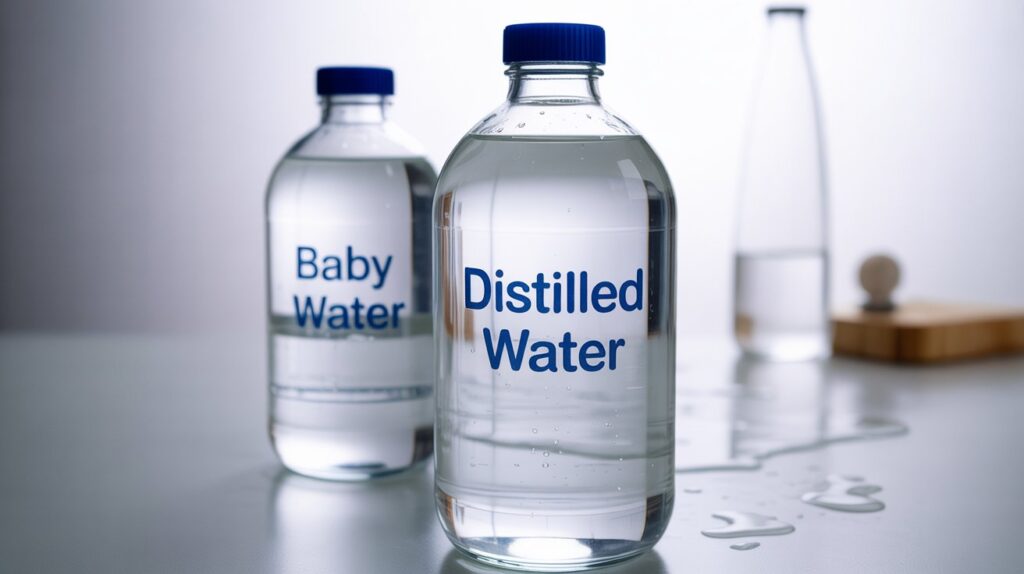
Uses and Benefits of Distilled Water
Distilled water has a wide range of uses and benefits, particularly in situations where purity is essential. It is commonly used in medical facilities for procedures that require sterile conditions, such as surgeries or dialysis. It is also used in laboratories for experiments and testing, as well as in the production of pharmaceuticals and cosmetics. In addition, distilled water is often used in household appliances such as steam irons and humidifiers, as it helps to prevent mineral buildup and prolong the life of the appliance.
One of the main benefits of distilled water is its purity. Because it is free from impurities, minerals, and contaminants, it is considered to be the purest form of water available. This makes it an ideal choice for situations where purity is essential, such as in medical procedures or in the production of sensitive electronic components. However, some people argue that because it lacks minerals, it may not be the best choice for everyday consumption, as it may not provide the body with essential nutrients.
Uses and Benefits of Baby Water
Baby water is specifically marketed for use in preparing infant formula and for mixing with baby cereal. It is intended to be a safe and convenient option for parents who want to ensure that their baby’s drinking water is free from contaminants and safe for consumption. Baby water may also contain added fluoride for dental health, making it a popular choice for parents who want to promote good oral hygiene in their infants.
One of the main benefits of baby water is its convenience. It is sold in smaller bottles and is often marketed as being specially formulated for babies, with added minerals or nutrients that are beneficial for their development. Some brands of baby water may also be marketed as being “sterile,” meaning that they have been treated to remove any potential pathogens or bacteria that could be harmful to infants.
Safety Considerations for Babies
When it comes to choosing the right water for your baby, safety should always be a top priority. It’s important to ensure that the water you use for preparing infant formula or mixing with baby cereal is free from contaminants and safe for consumption. Baby water is specifically marketed as being safe for infants, but it’s still important to read the labels carefully and choose a reputable brand that has been tested for purity and safety.
In addition to choosing the right type of water, it’s also important to consider how you store and handle the water once you bring it home. It’s important to keep baby water sealed and stored in a cool, dry place to prevent contamination. It’s also important to use clean bottles and utensils when preparing infant formula or mixing with baby cereal to prevent the introduction of harmful bacteria.
Choosing the Right Water for Your Needs
When it comes to choosing the right type of water for your needs, there are a few key factors to consider. If purity is essential, such as in medical procedures or laboratory testing, distilled water may be the best choice due to its lack of impurities and contaminants. However, if you’re looking for a convenient and safe option for preparing infant formula or mixing with baby cereal, baby water may be a better choice due to its added minerals and nutrients.
It’s important to read the labels carefully and choose a reputable brand when selecting baby water, as not all brands may be suitable for infant consumption. In addition, it’s important to consider how you store and handle the water once you bring it home to ensure that it remains safe for consumption. By taking these factors into consideration, you can choose the right type of water for your specific needs and ensure that it is safe and beneficial for you and your family.
